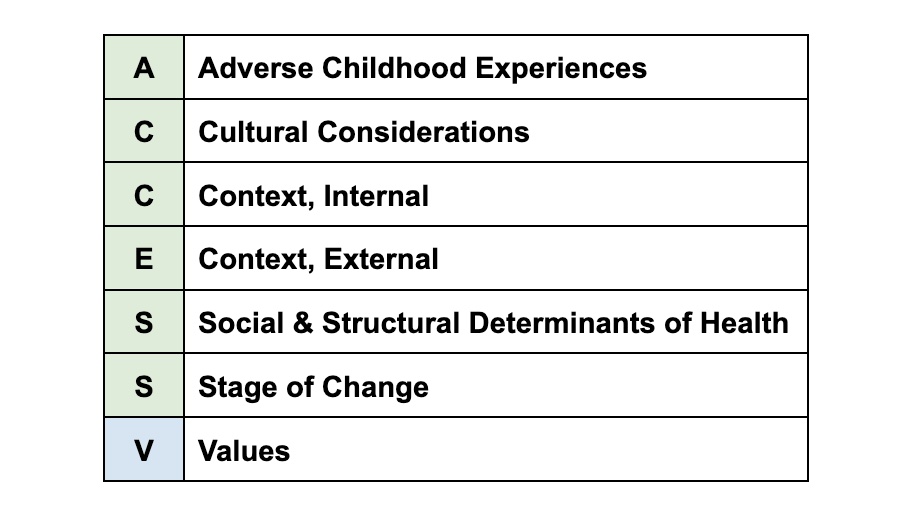Cahill, A., Martin, M., Beachy, B., Bauman, D., & Howard-Young, J. (2024). The contextual interview: a cross-cutting patient-interviewing approach for social context. Medical education online, 29(1), 2295049. https://doi.org/10.1080/10872981.2023.2295049
By: Amber L. Cahill, PsyD
If someone asked me, “What is the greatest impact you have as a behavioral health clinician (BHC) on the primary care team?” without hesitation I would say… providing patient context. The information I am most often communicating to my PCP colleagues, and other members of the primary care team, is conveying greater detail about a patient's current life / social context as it relates to health-related concerns of the primary care team.
In the past decade that I’ve worked in primary care, there is nothing more true to me than the belief that taking care of the health of communities must be done in teams. Whether you are a scheduler, medical assistant, nurse, clinical pharmacist, PCP, BHC, care coordinator, peer support specialist, each person brings their own vantage point, perspective, and skillset in understanding what's happening for a patient and best approaches to take care of them. For me as a BHC, that perspective is often putting a patient’s behavior, choice, personality style, and/or symptoms in context to that person’s life and experiences outside the four walls of the exam room. Social context variables ultimately affect how that patient engages with the primary care team, the healthcare system as a whole, and to what extent they are interested in and capable of engaging with health-related treatment plans and recommendations.
My interest in writing this paper comes from my work in creating a meaningful and practical behavioral science curriculum for family medicine residents, and my prior experience as a co-faculty in our medical school’s first-year Doctoring & Clinical Skills course, where medical students learn the foundations of patient interviewing. This paper speaks to the question, how can we evolve medical and patient interviewing training in medical education to be practical, cross-cutting, and target current and meaningful aspects of social context? Look no further than Dr. Patricia Robinson, Dr. Debra Gould, and Dr. Kirk Strosahl’s Contextual Interview (in Real Behavior Change in Primary Care)! My co-authors and I make a case for adapting the Contextual Interview as a key approach to patient interviewing in medical education training programs.
Hands down, my absolute favorite aspect of this paper comes from the minds of Dr. Bridget Beachy and Dr. David Bauman and their creation of the mnemonic ACCESS-V (see the full article for a detailed description of ACCESS-V). Who doesn’t love a good mnemonic? Especially one that encapsulates so many meaningful aspects of understanding the factors and adversities that impact our patients' health.

Connecting ACCESS-V mnemonic to the core structure of the Contextual Interview (Work, Love, Play, Health Behaviors) gives learners a clear anchor in what they are listening for during the Contextual Interview, with a focus on synthesizing and applying this information in real-time so that healthcare is delivered in a context-sensitive way.
Here’s a link to our article published in Medication Education Online: The Contextual Interview: A Cross-Cutting Patient-Interviewing Approach for Social Context
We are excited for next steps and bringing the Contextual Interview and ACCESS-V to medical education!
A big thank you to my stellar co-authors and collaborators!
Bridget Beachy, PsyD, Central Washington Family Medicine Residency
David Bauman, PsyD, Central Washington Family Medicine Residency
Matt Martin, PhD, MS, LMFT, CSSBB, College of Health Solutions, Arizona State University
Jordan Howard-Young, MD, MS, DAATS, CIPC Faculty, Director of the Primary Care Psychiatry Fellowship, Family Health Center of Worcester
